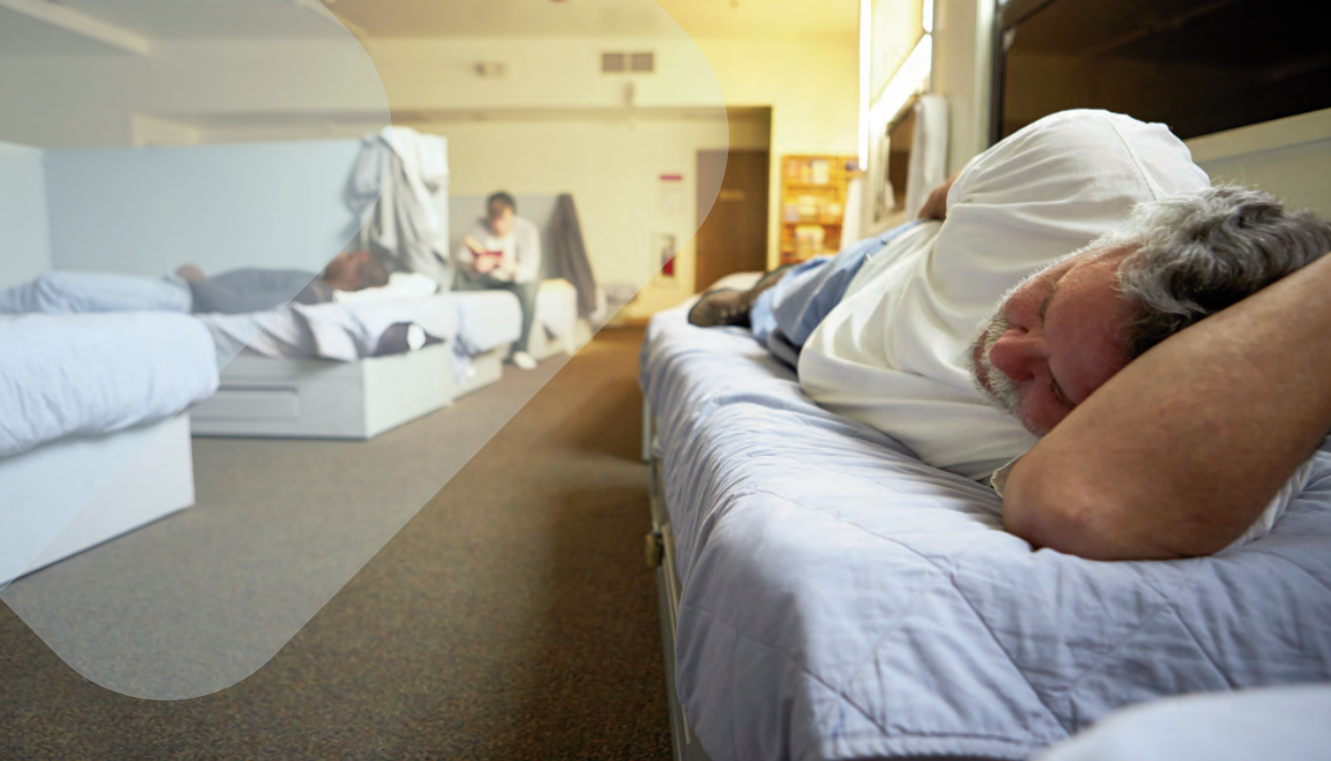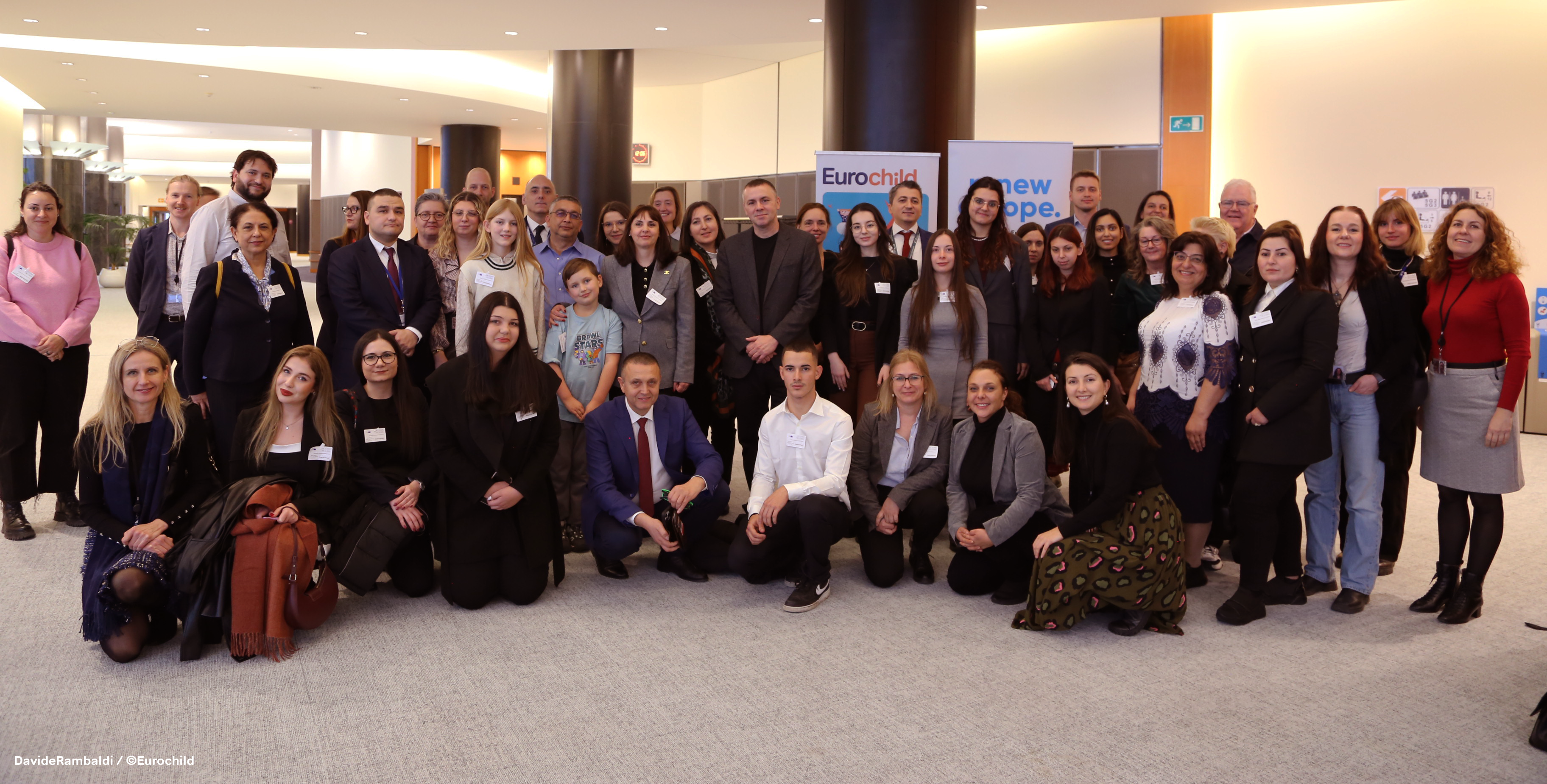Eurochild’s role in influencing key initiatives for reforming the childcare and protection systems in the EU
Eurochild contributed to the shaping of new policy and research at EU level on the need for deinstitutionalisation of alternative care for children.
Last week, two important initiatives were launched to support the reform of the child care and protection systems in the EU: the European Commission’s Guidance on independent living for persons with disabilities and the Eurofound Study: Paths Towards Independent Living and Social Inclusion.
Given our long-standing expertise in children’s alternative care, and as a member of the European Expert Group on the transition from institutional to community-based support (EEG), Eurochild contributed to the shaping of both initiatives, by sharing insights from our own experience, as well as from our members.
- European Commission’s Guidance on independent living for persons with disabilities
The European Commission has adopted new guidance to support the right of persons with disabilities to live independently and be included in the community. This initiative complements existing frameworks such as the UNCRC, UNCRPD, the European Child Guarantee, and the EU Strategy on the Rights of the Child.
The guidance emphasises the need for accessible community support services and facilities to enable inclusion in the community for persons with disabilities. The approach to promoting independent living considers the diversity and evolving needs of persons with disabilities through an intersectional lens. Effective deinstitutionalisation requires a strategic framework with clear timelines, needs-based investment analysis, time-bound targets, dedicated budgets, and strong governance. A robust quality control system and monitoring tools are also essential.
In the Guidance, the Commission states that support for families, including foster families, should focus on high-quality inclusive education, healthcare, housing, and psychosocial services, along with work-life balance arrangements for carers. Preventive measures are needed to prevent future institutionalisation, with a focus on social protection for individuals leaving institutions. Person-centred approaches to independent living should be prioritised, including for care experienced people. It is essential to involve persons with disabilities, including children, in policymaking and decision-making processes to ensure the effective implementation of the UNCRPD. The process of deinstitutionalisation should be guided by individual plans that assess individual needs and support persons with disabilities, ensuring continuity of support.
The Guidance provides practical recommendations to Member States on the use of EU funding to accelerate the transition from institutional care to community-based services and independent living for persons with disabilities including a new self-assessment tool to ensure EU-funded projects align with these objectives.
- New study from Eurofound: Paths Towards Independent Living and Social Inclusion
Eurofound, the EU agency for improvement of living and working conditions released the report Paths towards Independent Living and Social Inclusion in Europe, which Eurochild contributed to.
This new report analyses critical gaps in care systems and shares latest available data on the number of children and adults living in institutional care across the EU. It identifies major challenges, including the absence of comprehensive, comparable data on care services, which hampers efforts to foster independent living. The report also highlights that the living conditions of children in residential care, emergency shelters, and those experiencing homelessness or domestic abuse, are under-researched.
Despite the adoption of deinstitutionalisation strategies in many Member States, the number of children, adults with disabilities, and older people in residential institutions has risen over the past decade. Institutional settings often perpetuate isolation and hinder social inclusion, and there is overwhelming evidence of the harm they cause to children.
The report recommends prioritising person-centred care, enhancing access to affordable housing, expanding family- and community-based services, and incorporating service users’ voices in policy development. It also stresses the need for robust EU-wide data collection to improve living conditions and promote inclusion and refers to Eurochild and UNICEF’s DataCare project as instructive for improving data collection for children in alternative care.
This new study is timely as we look towards the next EU budget, ongoing monitoring of the European Guarantee for children in alternative care, and work at an international level to agree on standardised statistical classification for children in alternative care.
At Eurochild, we welcome these initiatives and are pleased to see that some key findings align with our years of experience supporting the reform of child care and protection systems. We will support the implementation of the European Commission’s guidelines and continue supporting the transition from institutional to family and community-based care for all children in Europe.
- Further Info
Interested in learning more about either of these initiatives? Contact Francesca Pisanu, EU Advocacy Officer at and Ciaran O’Donnell, Partnerships and Programmes Coordinator.




